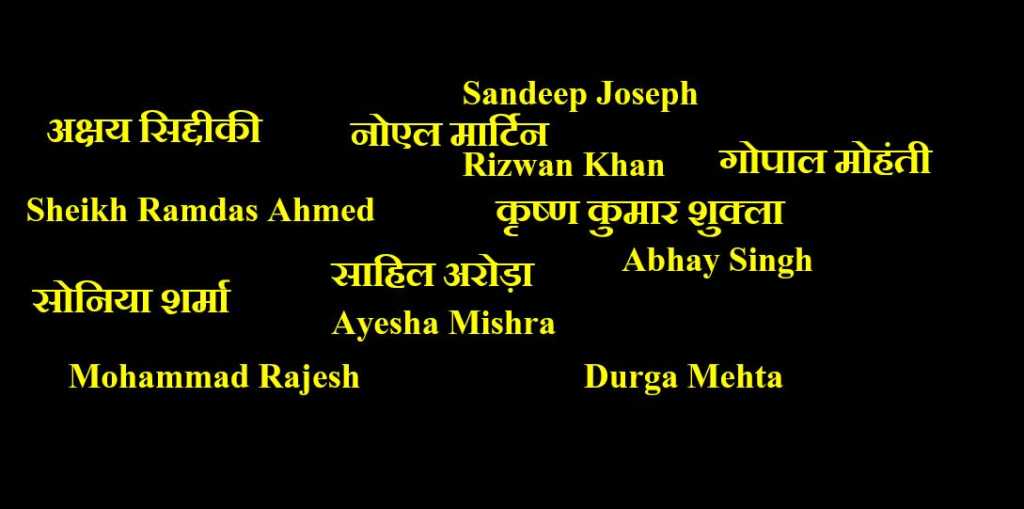Ages ago, a certain Mohammad Yousuf Khan had to change his name to Dilip Kumar to gain greater acceptance in India. And a certain Mumtaz Khan Begum Dehalvi gained great fame in the country as the supremely talented Madhubala. Which brings us to the question, what is in a name? While many don’t seem to realize it, a name given to a child at birth is the result of a complex social process, resulting from history, tradition, rites and rituals. This is why, in spite of centuries of co-existence between Hindus and Muslims, one hardly ever hears names such as Begum Saraswati Khan or Mohammad Shyamprasad Qureshi. There is a clear divide between Abrahamic and Dharmic religions when it comes to names. The names used within the Dharmic community, whether Sikh or Hindu or Jain or Buddhist tend to be the same or at least similar and stem from a common historical tradition. But Abrahamics draw their names typically from Western or Middle Eastern sources that are alien to the traditions of this land. Certainly, centuries of co-existence have resulted in a diffusion of sorts and thus several Arabic/Persian/English words have become a part of a common Indian lexicon. Therefore, it is not unusual to hear names such as Mehr, Aisha, Monica or Sonia among followers of Indic traditions.
It seems though that this diffusion is essentially one-sided. Islamic communities in India rarely, if at all adopt Indic/sanskritic names, preferring instead foreign sounding Arabic and Persian names. Take for example, Saif Ali Khan, who was formerly married to Amrita Singh and is now with Kareena Khan. Saif has three children, named Ibrahim, Sara and Taimur. Ibrahim is evidently named after the Biblical patriarch Abraham. Sara is again a Middle Eastern name meaning Princess and Taimur, meaning Iron in Arabic is more famous as the name of a 14th century bloodthirsty warlord who killed hundreds of thousands. Why couldn’t Saif, in spite of his cosmopolitan upbringing, choose a more Indic sounding name is something that deserves a thought. Not only Saif, but why do Muslim masses insist on using complex and foreign Arabic and Persian names, rather than using simpler Indic counterparts such as Raman, Rohit, Rahul, Neha etc.
As Tarek Fatah once quipped, it is either because of a feeling of superiority, Arabs conquered Indians and are therefore worthy of emulation or because there is a fear of social ostracization if a girl child were to be named as Neha instead of Rukhsana. Even in distant Kerala and Tamil Nadu, far removed from areas traditionally dominated by Muslim rulers, Muslims prefer names such as Sajid, Raashida etc. instead of common Tamil/Malayalam names. Obviously, there are exceptions that deserve to be highlighted, Bengali poet, Kazi Nazrul Islam, who named his children Kazi Sabyasachi, Kazi Aniruddha etc. Kazi Nazrul was being quite revolutionary in selecting names hailing from the Hindu pantheon, but there are several secular names- Hemant, Arun, Shirish etc. that can be used without any attached religious meanings.
Among the Christians, traditionally Indic names have been common. It is hardly a surprise to hear of names such as Pratibha, Aruna, Ranjit etc. In fact, one would assume that a majority of names in the Christian community, both in North and South India stem from Indic roots. Syriac Christian community in Kerala uses a list of names that, although derived from Hebrew and Aramaic have been Indianized over a period of time. Sadly, Christian communities have now begun looking towards the West for getting inspiration for names and slowly but steadily Indian names are being jettisoned for fancier, in vogue western names. Names such as Noel, Emmanuel, Victor, Angelica, Rebecca etc. are being favoured over the supposedly baser Indian names. Even in communities that have had a tradition of using Indic names, Western names are now being preferred. Over a period of time, perhaps the use of Indic names will be completely discontinued in favour of Western names.
While many may argue what is in a name and that it is the sentiment behind the word that endears it as a name, the truth is that a name, like a language is a manifestation of a culture. A name like Krishna, which means black/dark, might not be a word with a beautiful meaning but it conveys the characteristics of Krishna that made him regarded as a God. Why then should Mohammad Krishna or Krishna Daniel be weird while Krishna Shukla is acceptable. Why should it be that a society that worships women as Goddesses not have names such as Durga Bano or Durga Kurian, merely on religious grounds? Why should communities within India, a nation with a veritable goldmine of literary and historical traditions have to look towards Arabia, Persia or Europe for names for their children, especially when they’ve been an integral part of India for centuries? Turkey for instance, in spite of its Islamic majority, uses Turkish names in large part. Indonesians are not averse to using Sanskritic names as well.
